WORLDWIDE: HEADLINES
Global dividend payouts forecast to revive in 2021
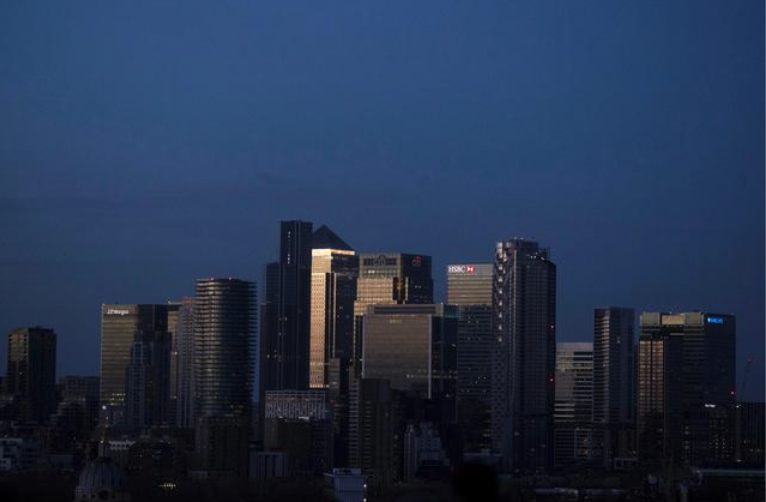
LONDON – Global dividend payments could rebound by as much as 5% this year, a new report estimated on Monday, after the coronavirus caused the biggest slump in payouts since the financial crisis more than a decade ago.
Companies’ payouts to shareholders plunged more than 10% on an underlying basis in 2020 as one in five cut their dividends and one in eight cancelled them altogether.
A total of $220 billion worth of cuts were made between April and December, based on investment manager Janus Henderson’s Global Dividend Index. But there are signs companies are beginning to reinstate at least some of them.
Janus Henderson’s report warned that dividends could still fall 2% this year, in a worst-case scenario. But its best-case scenario sees 2021 dividends up 5% on a headline basis.
“It is quite likely we will see companies pay special dividends in 2021, utilizing strong cash positions to make up some of the decline in distributions in 2020”.
Banking dividends will be likely to drive the rebound in payouts in 2021, the report said, after the European Central Bank and Bank of England eased blanket bans for lenders on dividends and buybacks. These were imposed during the first wave of the crisis to prepare for a potential increase in bad loans.
UK lenders Barclays and NatWest resumed payouts this month.
Last year, dividend bans meant banks cut or cancelled $70 billion of payments globally, according to the report.
Full coverage: REUTERS
U.S. orders extra inspection of some Boeing 777s after United incident, Japan suspends use
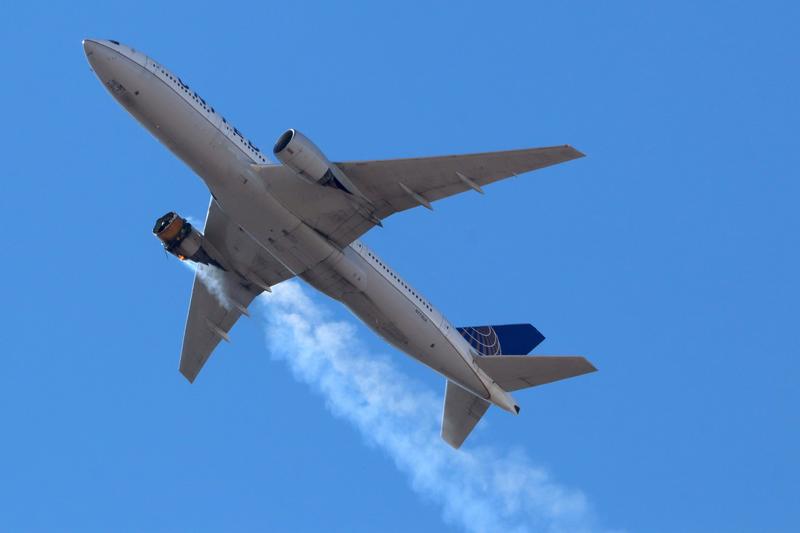
U.S. regulators announced extra inspections on Boeing Co 777 jets using the same type of engine that shed debris over Denver on Saturday, while Japan went further and suspended their use while it considers what action to take.
The regulatory moves involving Pratt & Whitney 4000 engines came after a United Airlines 777 landed safely at Denver International Airport on Saturday after its right engine failed.
United said on Sunday it would voluntarily and temporarily remove its 24 active planes of the type from its schedule.
Images posted by police in Broomfield, Colorado showed significant plane debris on the ground, including an engine cowling scattered outside a home and what appeared to be other parts in a field.
The National Transportation Safety Board (NTSB) said its initial examination of the plane indicated most of the damage was confined to the right engine, with only minor damage to the airplane.
It said the inlet and casing separated from the engine and two fan blades were fractured, while the remainder of the fan blades exhibited damage.
Japan’s transport ministry ordered Japan Airlines Co Ltd (JAL) and ANA Holdings Inc to suspend the use of 777s with P&W4000 engines while it considered whether to take additional measures.
The ministry said that on Dec. 4, 2020, a JAL flight from Naha Airport to Tokyo International Airport returned to the airport due to a malfunction in the left engine about 100 kilometers north of Naha Airport.
That plane is the same age as the 26-year-old United Airlines plane involved in Saturday’s incident.
Full coverage: REUTERS
WORLDWIDE: FINANCE / MARKETS
Oil gains as U.S. production slowly returns after freeze
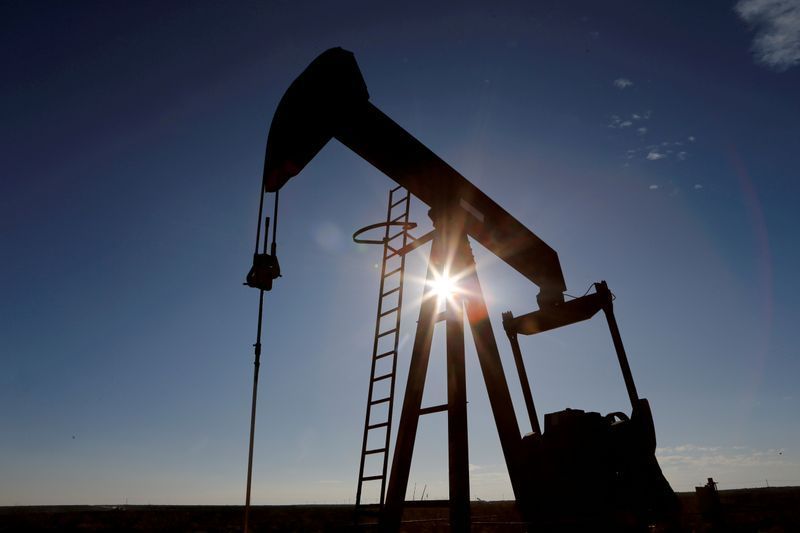
TOKYO – Oil prices rose on Monday as the slow return of U.S. crude output that was cut by frigid conditions raised concerns about supply just as demand is coming back from the depths of the coronavirus pandemic.
Brent crude was up 76 cents, or 1.2%, at $61.67 a barrel by 0104 GMT, after gaining nearly 1% last week. U.S. oil rose 74 cents, or 1.3%, to $59.98 a barrel, having fallen 0.4% last week.
Abnormally cold weather in Texas and the Plains states forced the shutdown of up to 4 million barrels per day (bpd) of crude production along with 21 billion cubic feet of natural gas output, analysts estimated.
Oilfield crews will likely take several days to de-ice valves, restart systems and begin oil and gas output. U.S. Gulf Coast refiners are assessing damage to facilities and may take up to three weeks to restore most of their operations, analysts said, with low water pressure, gas and power losses hampering restarts.
“With three quarters of fracking crews standing down, the likelihood of a fast resumption is low,” ANZ Research said in a note.
“Longer term, the fall in capital expenditure at U.S. shale oil companies this year will keep drilling activity subdued, leading to output remaining below pre-pandemic levels,” ANZ said.
For the first time since November, U.S. drilling companies cut the number of oil rigs operating due to the cold and snow enveloping Texas, New Mexico and other energy producing centers.
Full coverage: REUTERS
Dollar falls as improving sentiment boosts riskier currencies
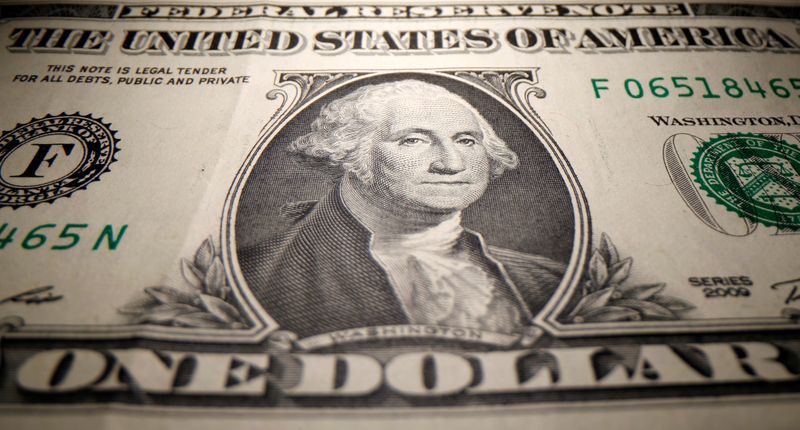
TOKYO – The U.S. dollar fell to a three-year low against its Australian counterpart and teetered near three-year low against the British pound as progress in curbing coronavirus infections boosted sentiment for riskier assets.
The greenback also slipped toward a three-year low against the New Zealand dollar as traders sought currencies with close ties to the global commodities trade due to an improving economic outlook.
The U.S. currency, which is often considered a safe asset during times of uncertainty, is likely to fall further as more investors focus on economic recovery once the worst of the coronavirus pandemic passes.
“Commodity currencies and the pound are particularly strong against the dollar, and this trend looks set to continue,” said Yukio Ishizuki, foreign exchange strategist at Daiwa Securities.
“Britain’s vaccination programme is making a lot of progress. Economic activity is gradually returning to normal in many places, which puts some pressure on the dollar.”
The Australian dollar hit $0.7892, its highest since March 2018 while the New Zealand currency rose to $0.7315, its strongest since April 2018.
Vaccine rollouts will ease risks to Australia’s economy over the year, ratings agency Fitch said on Monday when it maintained the country’s top AAA credit rating, albeit with a negative outlook.
The euro last traded at $1.2124
The British pound bought $1.4030, close to a three-year high.
Against the yen, the dollar held steady at 105.45
Full coverage: REUTERS
Shares make guarded gains as bond yields, resources spike
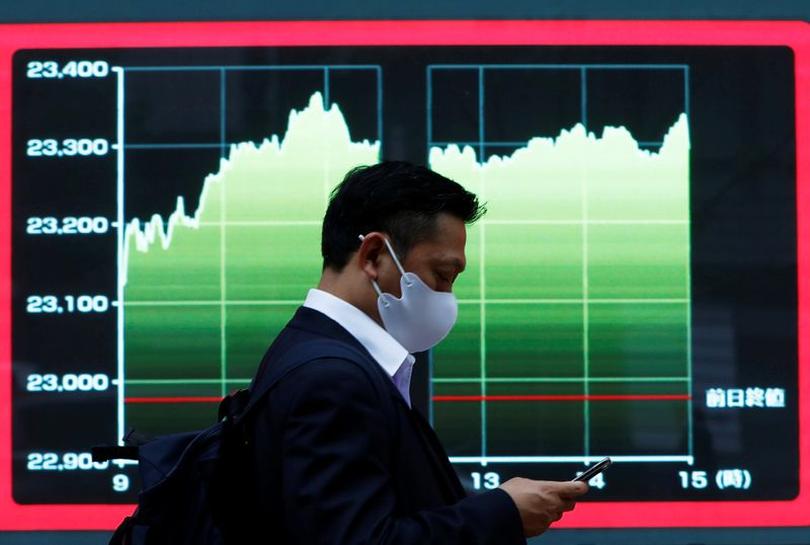
SYDNEY – Asian share markets inched up on Monday as expectations for faster economic growth and inflation globally battered bonds and boosted commodities, though rising real yields were making equity valuations look more stretched in comparison.
MSCI’s broadest index of Asia-Pacific shares outside Japan added 0.2%, after slipping from a record top last week as the jump in U.S. bond yields unsettled investors.
Japan’s Nikkei recouped 1.0% and South Korea 0.4%, but Chinese blue chips lost 1.2%.
S&P 500 and EUROSTOXX 50 futures were both hesitating around flat, while FTSE futures fell 0.6%.
Bonds have been bruised by the prospect of a stronger economic recovery and yet greater borrowing as President Joe Biden’s $1.9 trillion stimulus package progresses.
“Yield curves have continued to steepen, as COVID infection rates decline further, reopening plans are discussed and a large U.S. fiscal stimulus package looks likely,” said Christian Keller, Barclays’ head of economics research.
“This in principle signals a better medium-term growth outlook for the U.S. and beyond, as other core yields curves are moving in the same direction,” he added. “Meanwhile, central banks seem set to look through this year’s inflation increase, keeping the curves’ front end anchored.”
Federal Reserve Chair Jerome Powell delivers his semi-annual testimony before Congress this week and is likely to reiterate a commitment to keeping policy super easy for as long as needed to drive inflation higher.
European Central Bank President Christine Lagarde is also expected to sound dovish in a speech later Monday.
Yields on 10-year Treasury notes have already reached 1.38%, breaking the psychological 1.30% level and bringing the rise for the year so far to a steep 43 basis points.
Analysts at BofA noted 30-year bonds had returned -9.4% in the year to date, the worst start since 2013.
Full coverage: REUTERS


 Home
Home